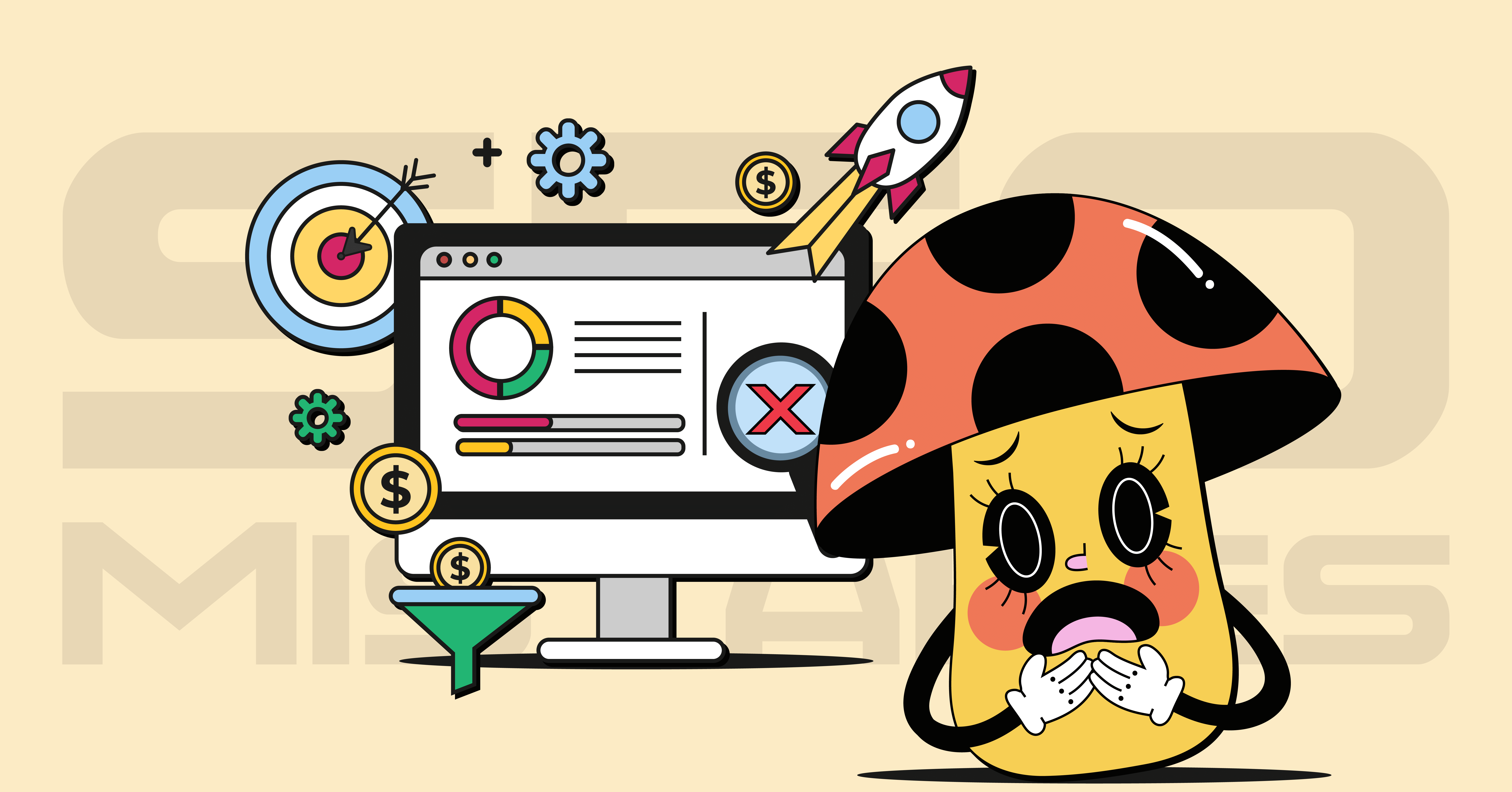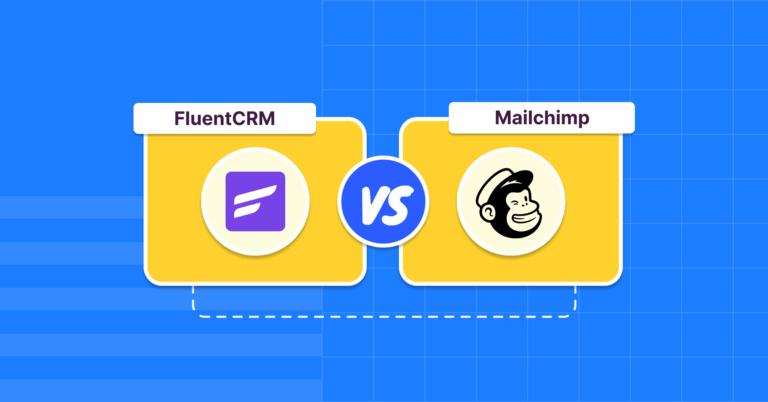

We will never spam you. We will only send you product updates and tips.
Do you often get confused about why your blog isn’t ranking in Google searches even after using the hottest focus keywords? The reason is simple.
Basic SEO practices are just not enough to keep up with the Google search engine algorithm these days. As a lot of site owners, you are making some errors that might be pulling your content from getting ranked #1. This goes for both small and large corporate businesses.
While there are plenty of online resources to implement both off-page and on-page SEO strategies, you just can’t overlook the common mistakes in SEO.
It’s not just site speed or page loading time you need to focus on.
In this post, we are gonna overview the common SEO mistakes you might be making. Also, we will give you some useful strategies to master SEO and get the rank you deserve on SERP.
Definition of SEO
SEO stands for “Search Engine Optimization”. In a simple manner, SEO is the practice of getting a website to rank higher in search engines like Google.
The process increases the unpaid or organic traffic to a website by getting ranked and improving the web page’s visibility in SERPs (Search Engine Results Pages).
Importance of SEO in digital marketing
SEO can help to drive more qualified leads to a website, increase brand awareness, build trust, and improve user experience.
- Check out tips for using SEO for lead generation.
- Or, tips to get rich snippet easily.
Additionally, SEO can improve the visibility of a website in the search engine result pages (SERPs) and improve the chances of being found by potential customers. This is why SEO is an essential part of any digital marketing strategy.
10 Common SEO Mistakes
Now, let’s dive into some of the most common SEO mistakes to avoid.
- Poor keyword research
- Failing to optimize page titles
- Overusing keywords
- Ignoring meta tags
- Lack of image optimization
- Not having a mobile-friendly website
- Poor use of internal and external links
- Not using the proper URL structure
- Ignoring user experience
- Not using analytics
These are the most common mistakes people make that hurt their SEO ranking.
Poor keyword research
Failing to do keyword research is one of the most common mistakes. Not understanding what your target audience is searching for can lead to your content not being found!
If you want to maximize content reach for your site, keyword research is a must.
Generic keywords may have a large search volume, but they don’t make content rank overnight. Focusing on specific queries will result in better ranks and you will have a greater conversion rate.
For example, “coffee” might have a high search volume, but it doesn’t point to a target topic. A proper keyword would be “coffee beans benefits,” “coffee for hair,” “best coffee shops near me” etc. People will search long-tail keywords and not just “coffee.”
Failing to optimize page titles
Optimizing the title of your content helps in SEO and can make the content rank in upper positions. You must optimize page titles for SEO since both users and search engines will understand your content based on the title of a webpage.
Since every page of your site may have different content, you need to use a unique and relevant title for each page of your website. Failing to put an attractive and concise title for the content will always result in content not showing up on search engines.
Overusing keywords (Keyword stuffing)
Using too many keywords in your content can lead to penalties from search engines.
It is essential to use keywords in the right amount and in the right places. Keyword stuffing may result in low-quality content. This common SEO issue is still prevalent as some people think stuffing keywords will get the rank up, but no.
It can make a website difficult to read and navigate. This creates a poor user experience, which can lead to fewer conversions and fewer returning visitors.
Ignoring meta tags
Meta-tags are essential for search engine optimization. It can be used to improve your click-through rate from SERPs search. Including relevant keywords and phrases in your meta tags can help ensure that your page appears more prominently in search engine results.
Without proper meta tags, search engines won’t know what your content is about. If the search engine can’t understand the intent, the content visibility will reduce. Meta tags help increase traffic and conversion rates.
Lack of image optimization
Search engines can’t see images, so it’s important to optimize them with appropriate titles, descriptions, and alt-texts.
Without proper alt-text, search engine crawlers can’t rank the image to put up on the search results. It’s one of the most common technical SEO errors.
Lack of image optimization may result in low rankings of content, missed opportunities, and relatively low traffic which will hurt the SEO.
Not having a mobile-friendly website
An increasing number of individuals are accessing the internet from their smartphones. You need a mobile-friendly website to be found by search engines.
A major portion of Google searches is done on smartphones, and badly optimized content for mobile devices will repel the consumer from checking out your content.
Poor use of internal and external links
Internal links are essential for SEO because they help with navigation and help search engines understand the structure of your website. Without making the right use of internal links, search engines are unlikely to crawl and index the content for SERP. Incorrectly configured links can lead to broken pages or links, and this can lead to a drop in page rank.
External links help build trust with search engines and can lead to better rankings. However, too many external links can slow down your website, eventually, affecting SEO.
Excessive links lead to a drop in user experience as well by overwhelming the viewer.
Not using the right URL structure
The URL structure of a website can make a big difference when it comes to SEO. It’s important to use URLs that are search engine friendly. If a website’s URL structure is poor, sharing it on social media or other websites can be a hassle.
Having multiple URLs for a single website can cause a duplicate content issue. It’s one of the on-page SEO mistakes you might be doing. Search engines like Google may penalize the website for having duplicate content and may lower the SERP ranking.
Ignoring user experience
Trust us when we say your website’s SEO will get hurt really bad if you ignore UX. A dissatisfied user may even give negative reviews that can de-rank your page in no time.
Without improving user experience, you can’t expect SEO to work or maintain a brand image. It’s one of the common SEO issues that you may run into but won’t understand right away from your viewpoint.
Not using analytics
Without analytics, it’s hard to know what’s working, what needs to be improved, and how your website is performing.
You should use actual software or services for analytics to research keywords, know the search volume, understand your site’s domain authority, etc. There is plenty of free and premium software available to do keyword research for SEO.
Some useful strategies to avoid SEO mistakes
Hold up, there’s redemption!
Some useful strategies to avoid common SEO pitfalls.
- Understand the right keywords
- Optimize page titles
- Optimize images correctly
- Use SEO tools
- Pay attention to user experience
- Build high-quality links
Research is a big part of SEO. But we got a suggestion for you. If you just keep focusing on SEO, keywords, and analytics, your content won’t be user-friendly.
Produce content that offers value and is not just SEO-optimized. Well-written content engages the reader, increases search engine rankings and traffic, and increases the likelihood of quality links from other sites.
The content itself is the king; that’s the golden rule of SEO.
Conclusion
To wrap up, SEO mistakes can be easily avoided if you stay up-to-date on the latest trends and techniques. It’s vital to keep your content fresh, relevant, and engaging to ensure you’re reaching your target audience.
Additionally, making sure to use the right keywords and phrases to optimize your website can help you achieve a higher ranking.
Avoid some common SEO mistakes and see your website grow!

Author: Romeo Nicholas Rozario
Romeo is a creative content writer for WPManageNinja and a tech enthusiast. On the flip side, a musician by passion when he’s free.





Leave a Reply
You must be logged in to post a comment.